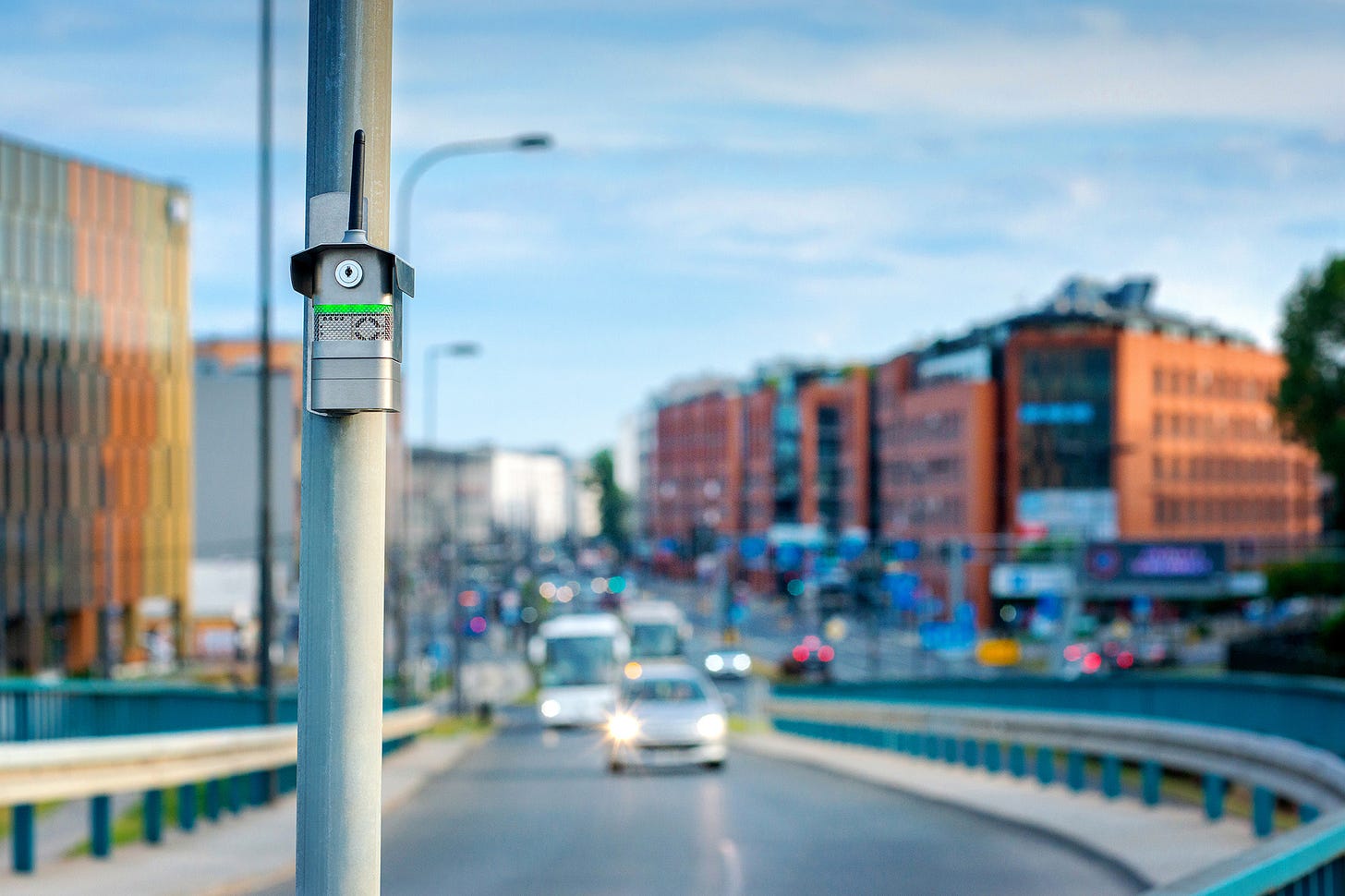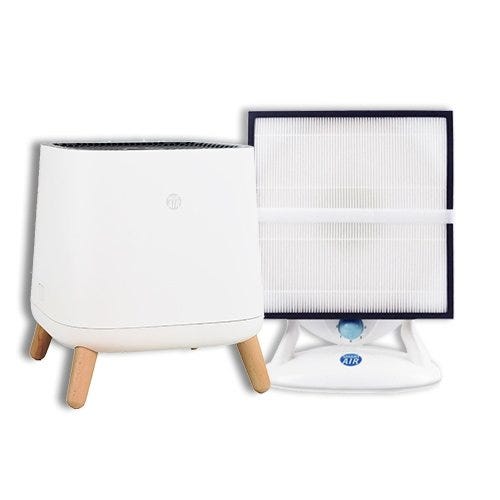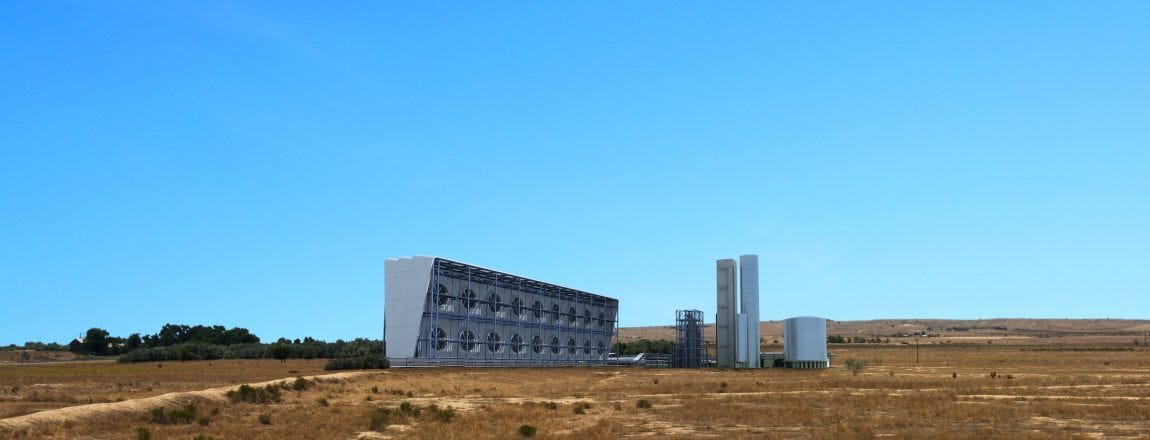The Air We Breathe
These 3 startups are working hard to provide us clean air
👋 Hi there,
If this is your first time here, welcome!🙂 Every week, I cover 3 startups across the world that wouldn’t have been founded if the founders said ‘🤷🏽♂️ Not My Problem’.
If you haven’t subscribed yet, you may want to consider doing that. Every Friday, these posts will directly land in your inbox.📨
Some housekeeping: To make sure that ‘🤷🏽♂️ Not My Problem’ lands in your inbox every Friday, please move it to your primary inbox if you use Gmail, add it to your VIP list if you use Apple Mail, add it to your favourites if you use Outlook or some combination of the above if you use anything else.
9 out of 10 people breathe polluted air, which causes strokes, lung cancer and heart disease- WHO

In 2020, in the five most-populated cities - Delhi, Mexico City, Sao Paulo, Shanghai and Tokyo, ~160,000 lost their lives due to air pollution.
The major causes of air pollution include vehicle emissions, coal power plants, construction, forest clearing, burning of crops, firewood and waste.
Let’s see how these three startups- Airly, Smart Air and Carbon Engineering are building innovative solutions to tackle this ⬇️
Changing the way you see the air you breathe
Air pollution is a global crisis…From the west coast cities in the US (reason: wildfire) to industrial cities in India and China, air pollution is omnipresent. The problem is especially pronounced in emerging and developing markets. For instance, 93% of people in Indonesia live in areas where the pollution levels exceed WHO guidelines. Capital Jakarta, which is home to ~11 million people, has levels 6 times higher than the guidelines. As a result, its citizens’ life expectancy reduces by ~4.8 years.
Data-based decision-making…American-Polish startup Airly believes that for the governments, companies and individuals to take action against air pollution, they need to understand the quality of air that their communities breathe. Airly’s sensors and software provide accurate, ultra-local, predictive air quality data- particulate matter, emissions like NOx, SOx, methane and carbon monoxide. Through its proprietary breakthroughs in sensor miniaturization, it can monitor more pollutants with greater accuracy, at a lower cost and in more places.

Over 10k data points in 30 countries…Local governments and cities like Berlin, Jakarta, Krakow and corporations like Philips, PwC, Motorola and Veolia count themselves as Airly’s customers. The Airly API service allows media, technology and finance companies to access real-time and historical air quality data. Individuals can access the air quality data of ~4500 locations via Airly’s app. This can help them decide the best time to indulge in outdoor activities(based on the air quality).
Clean air for more people
The cost of clean air…The impact of air pollution on human health is devastating- strokes, heart & pulmonary disease, lung cancer and acute respiratory infections. An estimated 8.7 million people are killed every year due to air pollution. The worst affected people are from the urban areas in middle and low-income countries. In the world’s most polluted cities like Delhi and Beijing, air purifiers act as an essential protective measure. But unfortunately, the electronic giants have exorbitantly priced these purifiers that make them unaffordable for an average resident.
A simple, cost-effective solution…Smart Air’s founder Thomas Talhelm realized during his research that air purifiers are essentially a combination of fans and filters and companies have been charging an obscene amount by selling it as ‘proprietary’ technology. He set out to change that notion and started Smart Air- a B Corp certified social enterprise(addressing environmental issues while being profitable) that provides simple, affordable purifiers to the masses. The purifiers have protected ~100,000 people in more than 30 countries to date.
Still can’t afford it? No problem…The Smart Air team also sells DIY kits(tools, fans and filters) for you to build your own air purifier(in just 15 minutes). To dispel myths around air pollution, the team has created an extensive list of articles. To protect more people from the harms of air pollution and as part of their social mission, they also run DIY workshops for NGOs, companies, schools and other organizations.
Pulling CO2 out of the atmosphere
Planting trees won’t cut it…IPCC’s report of 2018 indicates that we’ve got only a short window to reduce emissions to avoid the worst impacts of climate change. By 2050, we’ve to reach net-zero carbon emissions (any carbon emissions should be offset by the same amount). To achieve that, the world needs to emit far less carbon and take out much of what's already there. We need to get 5 gigatonnes of carbon out of the atmosphere by 2050. Now there are natural ways to do that(planting trees, restoring wetlands) but they won’t be sufficient. We need technological solutions to suck CO2 out of the air.
Direct Air Capture(DAC)…DAC has proven to be a promising technology in this field. It can remove a ton of carbon at ~$200 and then store it underground. Using this, Canadian startup Carbon Engineering pulls CO2 out of the atmosphere and sequesters it far below the earth’s surface. The captured CO2 can also be used to make marketable products- from bottling soda to fuels. In fact, at its pilot plant in Squamish, Canada, CE is already converting CO2 into fuel. Many companies also use CO2 to force more oil to the surface.
Carbon Sequestration-as-a-Service…But to meet our net-zero carbon targets, we need thousands of CE factories to suck CO2 out of the atmosphere- which would require huge financing. It needs organizations with deep pockets to fund CE’s factories. In return, these organizations will receive carbon credits that can be sold in the voluntary carbon credit market. Based on this model, eCommerce giant Shopify recently announced a partnership to fund CE’s Squamish factory. This would allow Shopify merchants and their customers to lower their carbon footprint.
🔍Quiz Time
So how much do you know about Air Pollution?
A company named Vitality Air sells cans of fresh air. They are based out of___(country)
2022 Winter Olympics will happen in ___(city) but with rising air pollution in this city, authorities are concerned about athletes’ health and performance
If you see an orange haze hanging over the city from a distance, it’s due to___( a gas)
6 out of the world’s 10 most polluted cities are in ___(country)
Tiny particles, known as___have a diameter of less than 2.5 micrometres and can penetrate deep into the lungs and cardiovascular system.
Answers in the next section
🙏 I would love to get some feedback. What do you think about this edition?
Or just reply to this email
🤝🏽 Let’s connect on LinkedIn and Twitter.
🎧 Subscribe to Epic Podcast on Apple, Spotify and YouTube.
Answers to the quiz- Canada, Beijing, Nitrogen dioxide, India, PM2.5






